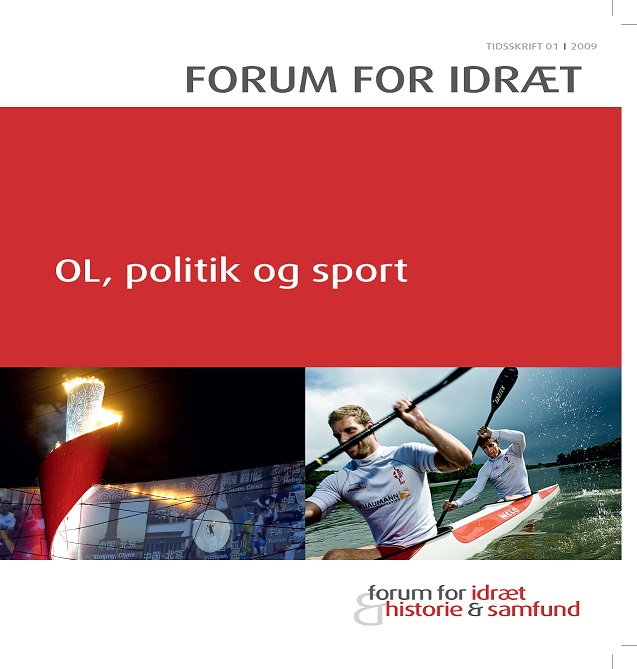De politiske spil omkring OL i Beijing 2008 - hvorfor blev de så dagsordensættende, og hvilke virkninger fik de?
DOI:
https://doi.org/10.7146/ffi.v25i1.31578Keywords:
Kina, Sport, PolitikAbstract
Artiklen tager udgangspunkt i to problemstillinger i forhold til OL I Kina 2008, Hvordan kunne de mange spredte aktører især ngo'er, få så stor indflydelse på dagsordenen, som tilfældet blev? og Hvilke formål lå bag de mange forskellige aktiviteter, og hvordan kan man forklare variationerne i opnåelsen af disse mål?
The political debate on the Beijing-games
What did participation in the Olympic Games in Beijing, and the preceding debates, mean for the desire to advance human rights in China? An analysis of the question needs to be set in the larger context of the many national and international political games played out. Two main problems are analysed: how could the many dispersed actors, particularly NGOs, set the agenda so decisively? What goals were pursued, and
how can we account for the variations in goalattainment? The answer to the first problem relies on the concept of (negative) »framing«, with the ever more concentrated international mass-media amplifying the agenda-setting capacity of the NGOs. A new element is that »boundary spanners« enable the Chinese population to discern the bias inherent in negative framing, thus affecting internal responses.
The second question is answered by arguing that there were several categories of goals ranging from idealistic/religious, over purely organizational to political or foreign policy goals. Goal attainment was affected by whether the goals of actors were related to change in China or outside, whether media-bias was observed, and whether questions affecting nationalism and sovereignty were touched on.
The analysis also discusses the influence of concepts like »group politics« and »soft power«. The analysis is based on media, on surveys and on interviews. It finds that human rights goals of NGOs were not furthered, whereas there may be a positive long-term effect of the successful games themselves. On organizational goals, it may also be too early to conclude. Concrete political goals, regarding for instance Darfur, Tibet or Xinjiang, registered no progress, on the contrary, but the likely US aim of reducing China’s growing »soft power« did have some success, at least in Western countries. A number of conclusions are drawn from the paradox of strong agendas- setting but little effect in China.
Downloads
Published
How to Cite
Issue
Section
License
Forfattere, der publicerer deres værker via dette tidsskrift, accepterer følgende vilkår:
- Forfattere bevarer deres ophavsret og giver tidsskriftet ret til første publicering, samtidigt med at værket er omfattet af en Creative Commons Attribution-licens, der giver andre ret til at dele værket med en anerkendelse af værkets forfatter og første publicering i nærværende tidsskrift.
- Forfattere kan indgå flere separate kontraktlige aftaler om ikke-eksklusiv distribution af tidsskriftets publicerede version af værket (f.eks. sende det til et institutionslager eller udgive det i en bog), med en anerkendelse af værkets første publicering i nærværende tidsskrift.
- Forfattere har ret til og opfordres til at publicere deres værker online (f.eks. i institutionslagre eller på deres websted) forud for og under manuskriptprocessen, da dette kan føre til produktive udvekslinger, samt tidligere og større citater fra publicerede værker (se The Effect of Open Access).





